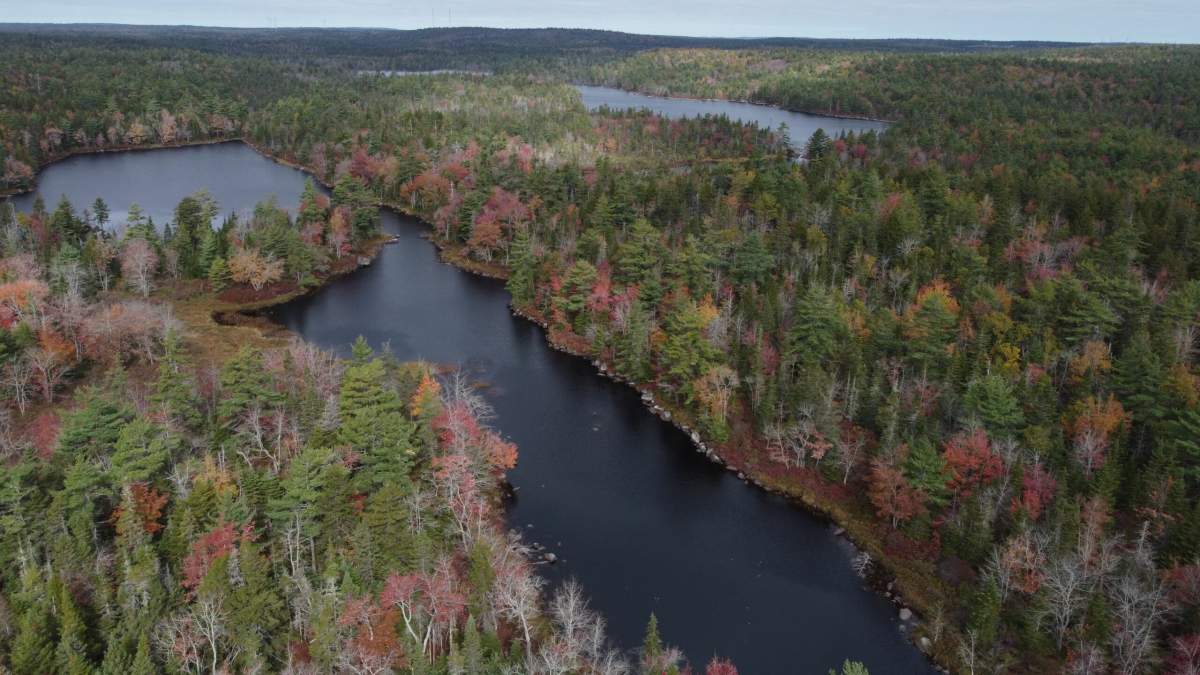The recent purchase of a huge swath of land just outside Nova Scotia’s capital city marks a “huge win” for conservation efforts in the province, according to a local environmental advocate.

On Tuesday, the Nova Scotia Nature Trust said it had successfully completed the purchase of the Blue Mountain Wilderness Connector, a 220-hectare private plot of wildland west of Halifax.
The group’s executive director, Bonnie Sutherland, said the purchase will help protect thousands of untouched hectares of wilderness from future industrial, residential and logging development. “It helps to provide that landscape level connectivity that’s so important for the long term for nature to survive and thrive,” Sutherland said Tuesday. “It’s a huge win for conservation.”
READ MORE: ‘Not a conservation concern’: N.S. Mi’kmaq won’t deplete lobster stock, says expert
The group said the formerly private land is located between two sections of the provincially protected Blue Mountain-Birch Cove Lakes Wilderness Area. The newly purchased plot of land includes forests, bogs and wetlands and supports over 150 different bird species
Sutherland said the group raised $2.8 million over the last two years to complete the purchase, which went through in mid-December. Funding partners included the city Halifax, the Nova Scotia Crown Share Land Legacy Trust and the Canada Nature Fund.
The protection of the area is a crucial step in warding off encroaching urban expansion, Sutherland said. “If you look at an aerial view, you can see that there are intense developments right up to the edges of what’s been protected in almost every direction so those pressures are real.”

Get daily National news
The protected area will only be open for “non-mechanized recreation,” including hiking, paddling and swimming, Sutherland added.

Momentum for the protection of nature has been steadily growing over the past decade, she said. “Twenty-five years ago, there was just a sense that we have tons of nature and we don’t really need to protect it,” she said.
Sutherland’s group said it plans to protect more than 12,000 hectares across the province by the end of 2023.
This report by The Canadian Press was first published Dec. 29, 2020.








Comments